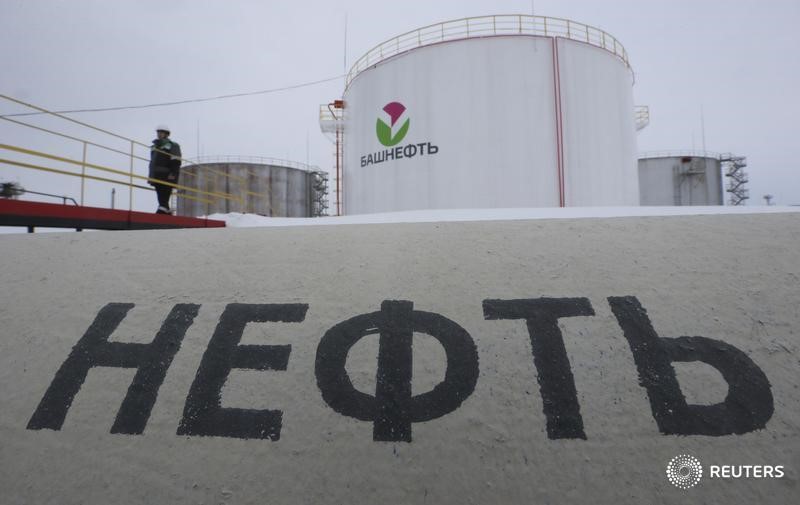By Barani Krishnan
Investing.com -- It took the bears two weeks to force a near 30% selloff in oil — and the bulls just three sessions to recover almost half of that.
Crude futures rose more than 7% in Monday’s London and New York trading as major European nations considered joining the U.S. ban on Russian oil, sending new alarm bells clanging around the energy sector.
Reports over the weekend of Yemen’s Houthi rebels unleashing a barrage of drone and missile attacks on Saudi Arabia, targeting a liquefied natural gas plant, water desalination plant, oil facility and power station added to the upward pressure on oil.
The combined three-day run-up of about 15% in U.S. crude and Brent halved the initial drop of almost 30% in the two benchmarks since they fell from March 7 highs of above $130 for a barrel.
In Monday’s trade, London-traded Brent, the global benchmark for oil, settled up $7.69, or 7.1%, at $115.52. Brent fell below $97 on Wednesday, before the start of its three-day rebound. Prior to that, it reached a 2008 high of $139.13 on March 7.
U.S. crude’s West Texas Intermediate, or WTI, benchmark settled up $7.42, or 7.1%, at $112.12 a barrel. WTI hovered at just above $94 during Wednesday’s lows. Prior to that, it reached $130.50 on March 7.
“Reports of the EU considering an embargo on Russian imports and … Saudi oil facilities (being) targeted” were the main drivers for Monday’s rally, said Craig Erlam, analyst at online trading platform OANDA.
But Erlam also said he had trouble believing the EU bloc will follow through its plan to block Russian oil, in the same vein as the U.S. import ban.
“Given the enormous reliance of certain member states on Russian oil, they may agree on a phased approach that will cut off Russian oil over a period of time,” he said. “The details of that will determine what kind of a reaction we see in the markets” in the coming days.
European Union countries are meeting Monday ahead of U.S. President Joe Biden’s arrival later this week to take part in a series of summits that aim to harden the West's response to Moscow over its invasion of Ukraine.
The U.S. and the U.K. have already announced plans to wean themselves off Russian oil, a move that EU governments have so far avoided given their stronger reliance on Russian oil and gas.
However, the sanctions currently in place to punish Moscow for Russia’s invasion of Ukraine haven’t had an immediate impact, and with the conflict intensifying the European Union’s top diplomat, Josep Borrell, said that the bloc is ready to discuss including energy in a new round of punishing measures.
Adding to the concerns over the tightness of the global market, attacks by Yemen's Iran-aligned Houthi group caused a temporary drop in output at a Saudi Aramco (SE:2222) refinery over the weekend.
“The product markets are already tight, particularly for middle distillates. Inventories in most regions are at multi-year lows, so the market will be sensitive to any potential supply disruptions on the product side,” said analysts at ING, in a note.
The latest report from the Organization of the Petroleum Exporting Countries and allies, a group known as OPEC+, released last week, showed some producers are struggling to fill their agreed supply quotas, with the group seen missing its production target by more than one million barrels per day in February
On the demand side, mainland China reported its first Covid-19 deaths in more than a year over the weekend, with the two fatalities matching the total number the country reported for the whole of 2021.
The Jilin region, bordering North Korea and Russia, accounts for more than two-thirds of domestic infections in the latest wave. This area is less strategically important than the southern technology hub of Shenzhen, which was shut down last week, but with China continuing to use stringent measures such as short and targeted shutdowns to combat the virus, further hits to demand seem likely.
The International Energy Agency outlined ways to cut oil use late last week, including car-pooling, lowering speed limits, and reducing the cost of public transport.
“The IEA believes that if advanced economies fully implement the measures, oil demand could fall by 2.7MMbbls/d within a four-month period,” ING added.
(With additional reporting by Peter Nurse)
